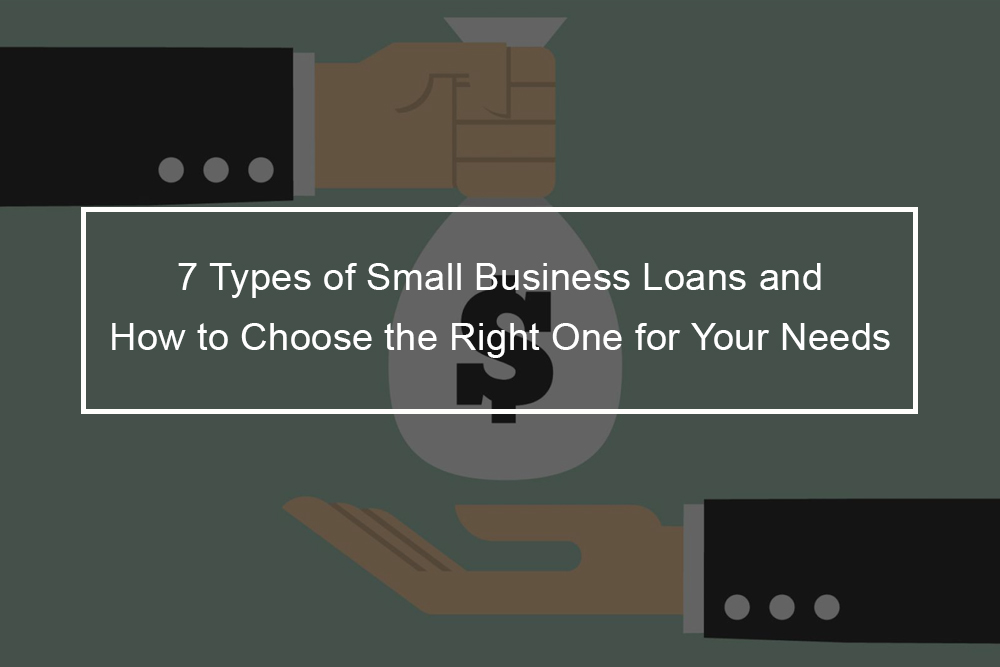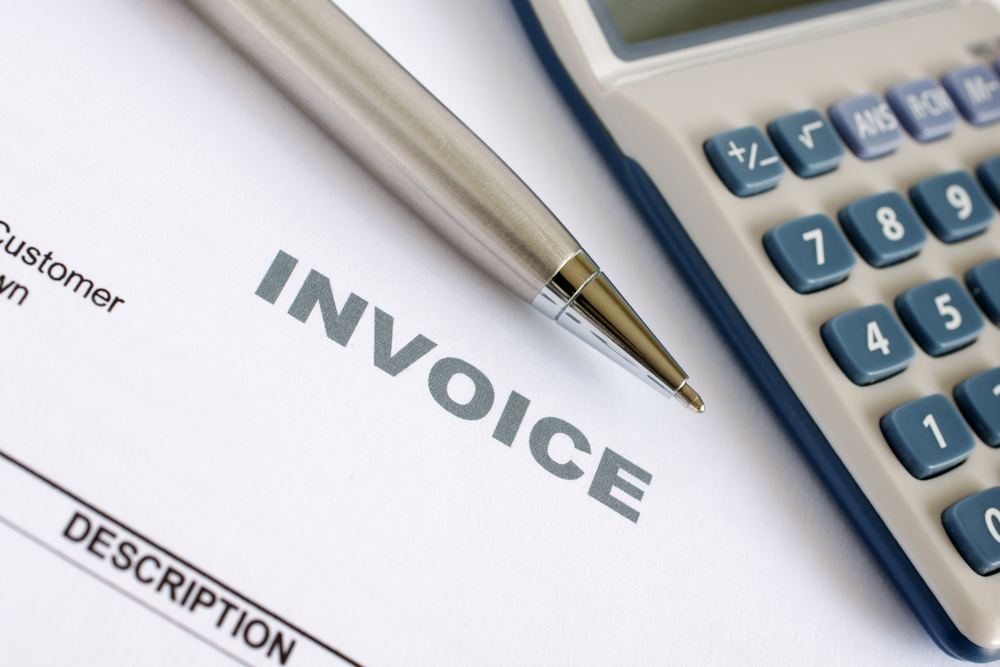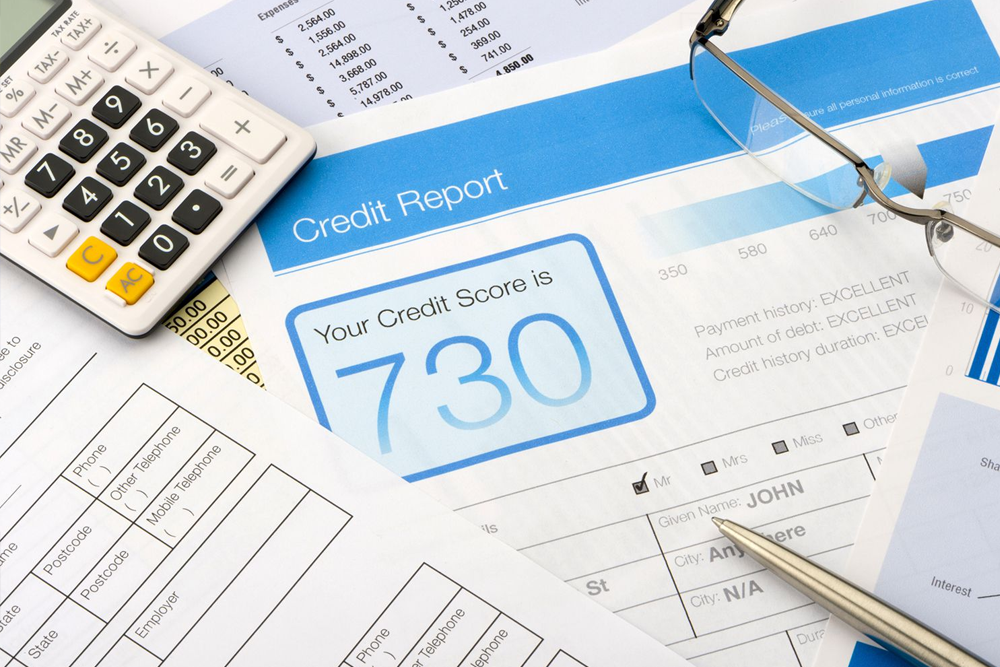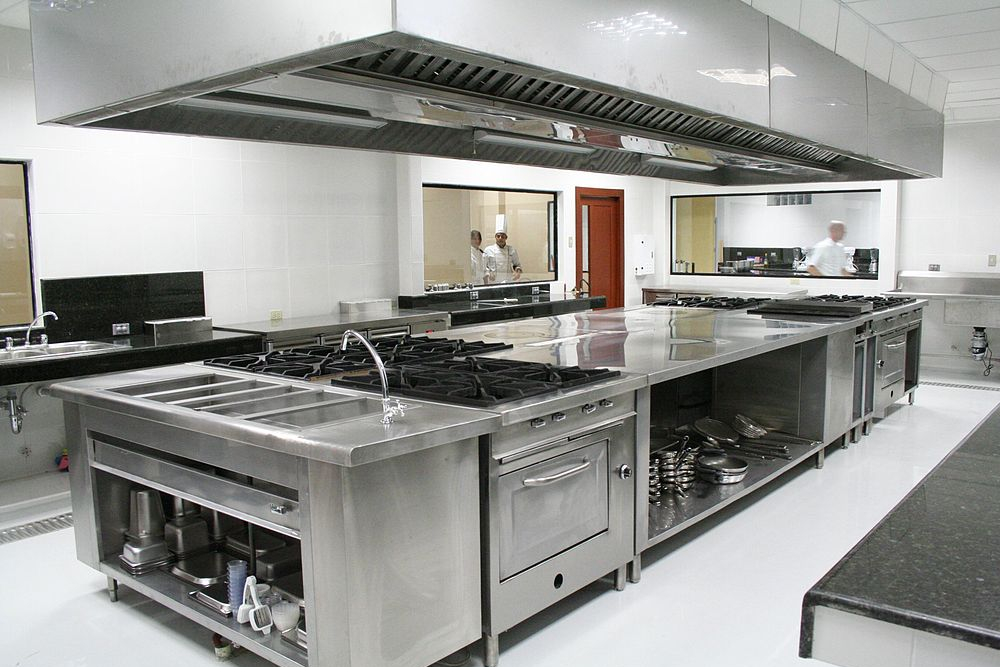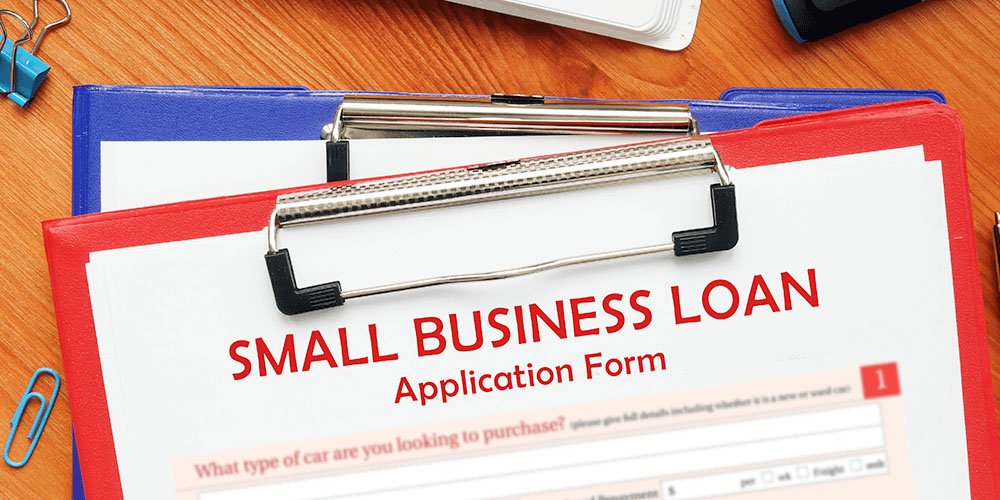When you are looking for debt financing for your business, there are many sources you can turn to, including commercial lenders, personal credit cards, and banks. And you do not need to pinpoint the exact type of loan you need before you approach a lender; they will assist you in deciding what kind of financing is best for your needs. Nevertheless, you should have some general idea of the different types of loans available, so you will understand what your lender is providing.
Most common types of small business loans available to entrepreneurs
Term loans
Term loans are suitable for business owners who need to make investments in specific business areas or have an ongoing need for working capital. But if you only need capital for emergencies or occasional, one-off situations, a term loan might not be ideal for you. With a traditional term loan, you borrow a set amount of money upfront, and then you pay back the money, with interest, on a specific repayment schedule. A variety of lenders provide term loans, including online and bank lenders. If you have strong credit and can afford to wait for financing, you should apply for a bank loan, since bank loans have the most desirable rates, amounts, and terms. On the contrary, if your credit is not as strong, you may try applying with a short-term lender.
Reasons why you might use a term loan:
- Planning long-term business expansion
- Investing in renovating or remodeling space
- Acquiring another business
- Buying real estate
Business lines of credit
Business lines of credit are good for business owners who want cash cushions for cash flow gaps or emergencies. You should skip this loan if you’re going to invest in expansion or other long-term business goals. With a business line of credit, the lender gives you access to a certain amount of money that you are able to draw from at any time as needed. There are both fixed and revolving lines of credit. With the latter type, the credit line resets after you pay your balance in full ( similar to a credit card).
Lines of credit are available from several types of lenders; however, banks provide the best interest rates and the longest time between renewals. Online lenders offer shorter-term lines of credit for business owners with lower credit scores and younger businesses. Small businesses can benefit from businesses lines of credit for any of the following reasons:
- Paying for unexpected emergencies or situations
- Covering seasonal cash flow droughts
- Tiding over cash flow while waiting for customers to pay you
- Paying for recurring operating expenses
Business lines of credit can create a cushion in case of cash flow emergencies and can also come in handy when you require money quickly. Banks often offer both unsecured and secured credit lines. For secured lines, you must put down some assets as collateral.
SBA loans
SBA loans are best for small businesses with strong credit histories looking for competitive non-traditional loan options. You can skip SBA loans if you need quick capital or have low credit. The Small Business Administration (SBA) is a federal organization that serves as a resource for small business owners. One of the greatest advantages of SBA is its low-cost, government-backed loan program. Business owners do not go directly to the SBA to obtain loans. Instead, they go to SBA-approved lenders known as intermediaries. Since the SBA guarantees large percentages of every loan, lenders are more apt to fund small business owners when traditional options are not in the cards.
There are various types of loan programs available through the SBA. This incorporates the 7(a) standard plan, which offers up to $5 million for almost all business purposes. Microloans of up to $50,000 are available for smaller funding needs. The SBA also provides the Community Advantage Program for businesses in underserved communities and the 504 programs for the purchase of real estate and the Veterans Advantage Program for service members and military veterans.
These loans are generally reserved for business owners with good credit scores (at least in the high-600s). The procedure to receive an SBA loan is very long, potentially taking months from application to funding. Nevertheless, since the SBA has set interest terms and rates, these are also some of the most affordable loans on the market.
SBA loans serve many different purposes. They are ideal for large purchases, commercial real estate, equipment, or even acquiring a business. They can also be used to refinance existing debt or for working capital. These loans are very flexible, and with so many programs, it is simple to find one that works for any company that meets the SBA’s requirements. SBA loans can be obtained via intermediary lenders, including Commercial Development Companies, non-profit organizations, credit unions, and banks.
Short-term loans
The short-term loans are best for emergency financial needs or businesses with low credit scores. A short-term loan should be repaid over a short period, often within one year. The repayment period varies according to the lender; however, it can be months or even a few weeks. Short-term loans provide a quick way to get much-needed cash and are best for unexpected emergencies.
Short-term loans might also be an option for businesses with a bad credit score. Low business or personal credit scores might disqualify business owners from long-term loans with better rates and terms. A short-term loan could be a great way for borrowers with a poor credit history to get the money they require quickly while also boosting their credit after paying off the loan.
Nonetheless, it is very vital to remember that these loans usually come with very high-interest rates. Since short-term loans can be very costly, it is essential to use them only when emergencies arise that cannot be settled through other means. Short-term loans can be attained through alternative online lenders. These loans are generally easy to receive and do not need an extensive application process like other types of business loans.
Equipment financing
Equipment financing is ideal for business owners who need to buy or lease business equipment, vehicles, or machinery. But you might want to skip this loan if you do not have an immediate need for business vehicles, machinery, and equipment. An equipment loan is one of the most popular asset-based loans and is also called equipment financing. This small business loan is a potential fit if you are looking for money to acquire a piece of new or used equipment. Instead of paying for costly equipment outright, you can take an equipment lease or loan to fund the purchase.
An equipment loan is available to established, and new businesses and even business owners with lower credit scores are generally able to qualify. Unlike some other kinds of business loans, business owners with less-than-ideal credit can often be eligible for equipment loans because the equipment itself secures the loan. This way, you won’t need to put up any other collateral- the equipment itself serves as collateral.
Equipment loans have many affordable interest rates, ranging from 8 to 30 percent, based on your business’s age, finances, and credit. You can use equipment financing to lease or buy a range of equipment types, which can incorporate appliances and vehicles that you use in the course of business.
Invoice financing
Invoice financing is suitable for B2B businesses that have cash flow problems stemming from unpaid invoices. If you are a B2C business or do not invoice customers, you might want to skip this loan. With this kind of business loan, you use your outstanding invoices to obtain a cash advance from a lender. The unpaid invoices serve out as collateral for the advance.
With invoice financing, a lender advances you a percentage of your total invoice amount, often around eighty-five to ninety percent, and holds onto the remaining percent. You can utilize the advance to cover business expenses while waiting for your customers to pay. During that duration, the lender will generally charge a weekly fee. After your customer pays, the lender will return the remaining ten-percent to fifteen percent minus the fee.
Overall, invoice financing is an excellent option if you have cash flow issues resulting from billing several customers, all of whom pay at different times. You can use the advance to cover rent, payroll, and other operating expenses.
Merchant cash advances
Merchant cash advances are best for small businesses with lower credit scores that need cash faster. You can skip this loan if you can qualify for another, less expensive business loan product. Small businesses that require money faster for an emergency or to buy supplies or inventory might consider merchant cash advances. With merchant cash advances, a lender advances business money in return for a percentage of future credit card sales.
After you receive a merchant cash advance, daily payments are withdrawn by the lender from the business’ bank account. When sales are low, the payment is also low since the payment is based on a percentage of sales. Merchant cash advances might be a consideration for businesses with lower credit scores since the lender is more captivated by the amount of credit card sales. This kind of financing is often provided very fast- in some situations, within 24 hours.
The main downside of merchant cash advances is that interest rates can be much higher compared to other lending options, making this a very costly kind of credit. As with other types of business loans, a small business should consider the total cost of the merchant cash advance and then shop around for the best rates. Merchant cash advances are available via alternative lenders.
Generally, there are many different types of business loans- and the right one for your business ultimately comes down to several factors. Every type of small business loan is designed for a different business need. Thus, you will need to consider your credit, the length of time you have been operating, your business’s finances, and your reason for the loan before narrowing down your options.

